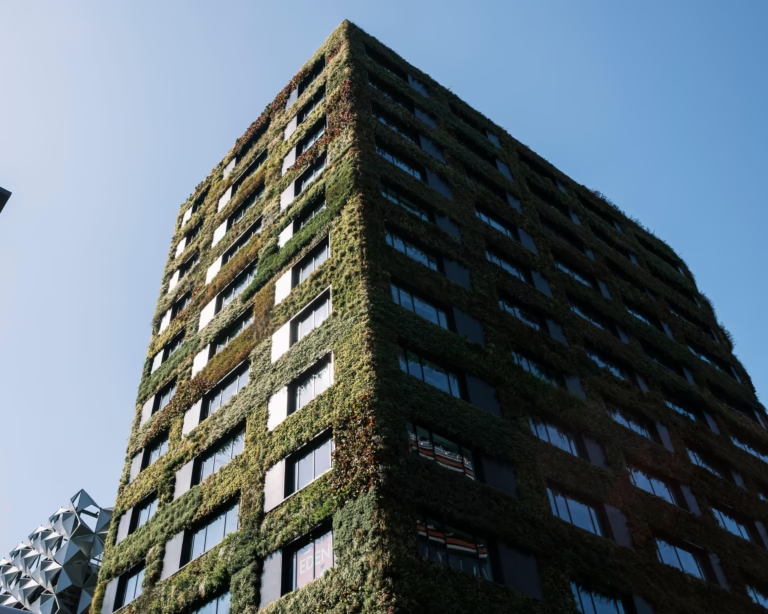Global demand for “green” office buildings has slowed, with a sharp drop in interest across North and South America, following U.S. policy changes under President Donald Trump, according to a survey of construction professionals.
The Royal Institution of Chartered Surveyors (RICS) found that building occupiers and investors reported weaker growth in demand for sustainable commercial buildings, “seemingly in response to a change in U.S. policy focus.” Demand in other parts of the world also fell, though less drastically.
Residential and commercial buildings accounted for 34% of global carbon emissions in 2023, according to the UN Environment Programme. Most of these emissions come from heating, cooling, and powering buildings, while roughly 20% are linked to construction materials and processes.
The United Nations called for “critical acceleration” in the buildings sector to meet climate targets, emphasizing the need to reduce emissions in construction and building operations.
Green buildings incorporate strategies such as low-carbon concrete, water conservation, improved insulation, and renewable energy systems. Energy efficiency upgrades also reduce operating costs, giving sustainable properties a competitive advantage in rental markets, particularly among corporate tenants.
Nicholas Maclean, RICS’s acting president, said the slowdown might be temporary. “The people who are going to end up using these buildings want them to be sustainable. Everybody knows this is the right thing to do,” he said.
Despite the drop, some U.S. professionals still reported growth in demand for sustainable office buildings. However, the proportion reporting higher demand fell from 25% to 11%, the lowest across all surveyed regions.
Outside the Americas, demand remains stronger, though it also declined slightly, with 40% reporting growth compared to 48% in 2021, the survey’s first year.
Kisa Zehra, RICS’s sustainability analyst, noted the significant impact of government policy on market confidence. The Trump administration’s rollback of numerous environmental protections has undermined trust in green building standards.
RICS also reported a decline in the measurement of embodied carbon—emissions from materials like steel, glass, and concrete or the construction process itself. The percentage of professionals not measuring embodied carbon rose to 46%, up from 34% the previous year, while only 16% said carbon data meaningfully influenced material choices in project design.
As global governments work to achieve climate goals, the survey highlights the challenges of maintaining momentum in green construction amid policy uncertainty and market hesitancy.







